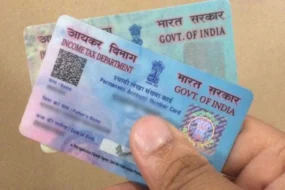India’s highway toll collection system is set for a major overhaul. Starting on May 1, 2025, the National Highways Authority of India (NHAI) will replace the widely-used FASTag system with a more advanced GPS-based toll collection technology. This transition is part of India’s effort to modernize road travel, reduce congestion, and introduce greater transparency to tolling practices.
Why is FASTag Being Replaced?
While FASTag has brought improvements to toll payments, such as reducing wait times at toll plazas, challenges like misuse, technical glitches, and congestion at busy toll booths remain. To tackle these issues and align with global standards, India is introducing the GPS-based toll system, which is expected to bring more efficiency, reliability, and seamless travel.
What is the New GPS-Based Toll System?
The GPS-based tolling system will eliminate the need for physical toll booths or tag-based systems, relying instead on GPS technology to track vehicles as they travel on highways. This system will automatically calculate and deduct toll charges as vehicles pass through toll points, reducing human intervention and streamlining the entire process.
How Will the New System Work?
The new system will utilize satellite navigation technology to monitor the movement of vehicles. As a vehicle enters and exits toll zones, the system will determine the appropriate toll fee based on the distance traveled, eliminating bottlenecks at toll booths. This system aims to reduce congestion, especially during peak hours.
What Happens to Existing FASTag Users?
As the GPS-based toll system takes over, FASTag will become obsolete. Users of existing FASTag devices will need to transition to new systems, which will be made available in advance of the system’s rollout. More information on this transition will be provided closer to the launch date.
Benefits of the New Toll System
- Reduced Congestion: No need to stop at toll booths, allowing for continuous movement.
- Enhanced Efficiency: GPS technology provides real-time tracking and accurate toll charges.
- Transparency: A more transparent system will minimize errors and ensure fair toll collection.
- Convenience: The system will work automatically, eliminating the need for physical tags.
How to Prepare for the Transition
Motorists should stay updated on official announcements from NHAI and local authorities regarding the new GPS-based toll system. Ensure that your vehicle is equipped with the necessary technology for the GPS tolling system to work smoothly.
What About Privacy and Data Safety?
With the introduction of a GPS-based system, concerns over privacy and data security are expected. The government is likely to implement stringent regulations to protect personal information and ensure the system operates securely.
States & Highways Included in Phase 1 Launch
The phase 1 rollout of the GPS-based toll system will cover select highways and states, with the full implementation planned across the country over time.
This change is expected to revolutionize toll collection in India, making highway travel smoother, faster, and more efficient. Stay tuned for further updates as we approach the May 2025 transition.
















